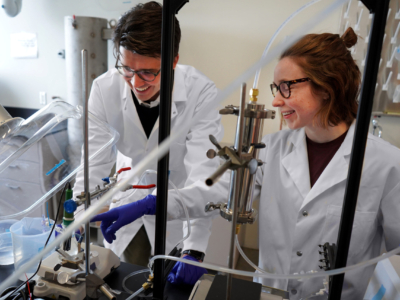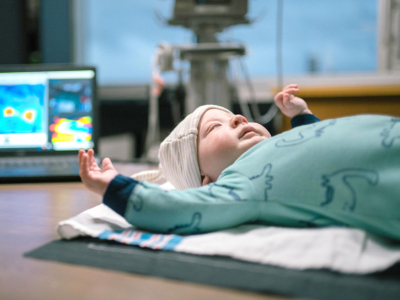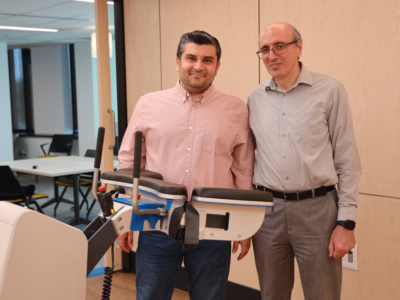Carleton University researchers, led by Gabriel Wainer, a professor in the department of Systems and Computer Engineering, and industry partner Autodesk, have received a Natural Sciences and Engineering Research Council of Canada (NSERC) Strategic Partnership Grant worth $617,000 to investigate new technologies that will assist in the design of more sustainable buildings.
“Carleton continues to take the lead working with industry partners on issues related to sustainability,” said Rafik Goubran, vice-president (Research and International). “This collaborative project will play an important role in developing sustainable buildings and greener communities.”
Wainer, along with Carleton’s Stephen Fai and Liam O’Brien, leads a group of more than a dozen interdisciplinary researchers combining the disciplines of systems engineering, civil engineering, mechanical engineering and architecture.
“Modern building automation systems collect and store vast amounts of data in temporal scales ranging from seconds to multiple years and spatial scales ranging from rooms to communities,” said Wainer. “But the tools that facilitate management and visualization of these data are in their infancy. The whole point of our project is greater building sustainability. How can we build or retrofit buildings to reduce emissions and improve sustainability?”
Currently, when an architect designs a building they use a set of tools developed for a process called Building Information Modelling (BIM). Essentially, this process involves the integration of architectural geometry with information related to the materials and methods of construction involved in the assembly process. Autodesk, the industry partner in this research collaboration, is a leading provider of BIM software and will use the research to further improve their tools. Autodesk is supporting the researchers financially and with in-kind contributions, including technology and training.
“Autodesk has a unique and exciting opportunity to extend our existing relationship with Carleton with a diverse set of students and academic professionals across a variety of disciplines in generative design, building science and system simulation,” said Azam Khan, director, Complex Systems Group, Autodesk Research. “With Autodesk Research situated in Toronto, our local collaboration on this multi-faceted project will help accelerate research and our collective knowledge base from designing at the building scale to designing at the campus scale.”
BIM systems keep track of every element of a building. This assists the architect in creating an ecologically responsible design, and it helps the building manager to keep the building running for decades after it is constructed. A building designed with BIM includes a database that tells the manger everything that is in the building in case it needs to be replaced or updated. It can even tell the manager where to buy the replacement item. The same system can be used for new construction and older buildings that are being retrofitted.
In addition to refining existing BIM tools and practices, the project also considers a new approach called generative design which provides the architect with options during the design process. The approach uses simulations to provide a variety of scenarios based on possible design choices. The team is also focused on developing occupancy models and simulations that provide architects with information on how to maintain the comfort of occupants while minimizing emissions. Finally, Wainer and his team are augmenting existing building controls to ensure that they work in concert and increase efficiency.
The goal of NSERC’s Strategic Partnership Grants is to increase research and training in targeted areas that could strongly enhance Canada’s economy, society and/or environment within the next 10 years. Research and training under these grants must be conducted through a partnership between academic researchers and industry or government organizations.
Friday, May 3, 2019 in Architecture, Civil and Environmental Engineering, Faculty, Intelligent Infrastructure, Internet of Things, Research, Smart Buildings and Homes, Sustainability, Systems and Computer Engineering
Share: Twitter, Facebook



